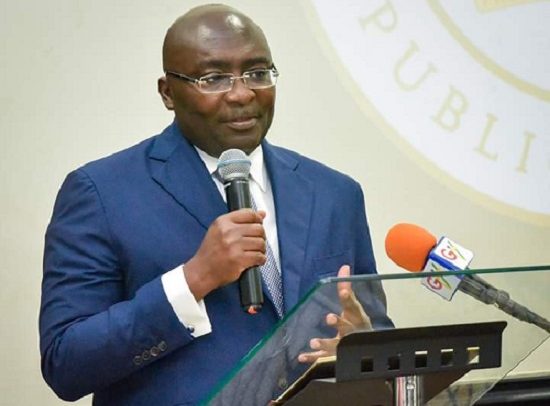Vice President Dr Mahamudu Bawumia
The Vice President Dr Mahamudu Bawumia has stated that Fly Zipline Ghana, operators of drone delivery services, which is contracted to augment the nation’s health delivery, will start operation by April, this year.
The company will use drones to deliver essential medicines and pints of blood to remote parts of the country where they are in dire need.
He gave the assurance when he officially opened the 5th Conference of the African Health Economics and Policy Association (AfHEA) yesterday in Accra.
He said government had decided to set aside 2.5 per cent of taxes on goods and services to boost healthcare delivery in the country.
“Particularly in such far-away places in the countryside where the road network is too terrible and health personnel are unable to immediately transport patients to health centers in the cities, drone services come handy.”
The Vice President explained that the government decided to take advantage of such technology to ensure cost-effective healthcare delivery, which would in turn help to achieve the universal health coverage of the United Nations Sustainable Development Goals (SDGs).
With about 14 million Ghanaians expected to benefit from the service, Fly Zipline Ghana, operators of the drone delivery services, would convey 149 key medical supplies across the country.
According to Dr Bawumia, government’s policy to supply one ambulance to each of the 275 constituencies by June, this year, would enhance healthcare delivery as part of the inclusive transformation agenda.
Additionally, he indicated that the NPP administration was bent on implementing programmes and interventions to improve lives and sustainable development.
The programmes include the National Health Insurance Scheme rolled out in 2003, Free Senior High School (SHS) Policy and the digitisation of the health sector.
Parliament, last year, gave approval to Fly Zipline Ghana to operate in the country to improve medical services in deprived communities.
Ghana thus becomes the second nation in Africa after Rwanda to adopt the drone technology for distribution of medical supplies.
The four-day conference, which also marks the 10th Anniversary of the Association, is under the theme: “Securing Primary Healthcare for All, the Foundation for Making Progress on Universal Health Care in Africa.”
The meeting attracted more than 450 members of the Association, comprising health experts and practitioners, researchers and students, who would discuss health outcomes, policy analysis and health financing, to facilitate decision-making in the health sector in Africa.
The Vice President called on health practitioners and key stakeholders to find solutions to health problems since the continent lags behind in a lot of health indicators.
Dr Bawumia also expressed worry about the high infant mortality rate in Africa which threatens efforts to meet the SDG target by 2030.
He called for increased investment in healthcare infrastructure and human capacity by African countries to achieve primary healthcare towards meeting the global healthcare benchmark.
Dr Chris Atim, Executive Director of the African Health Economics and Policy Association, in a remark, said the association, which was established on March 12, 2009, seeks to aid African countries to achieve quality healthcare for their citizens.
– GNA


